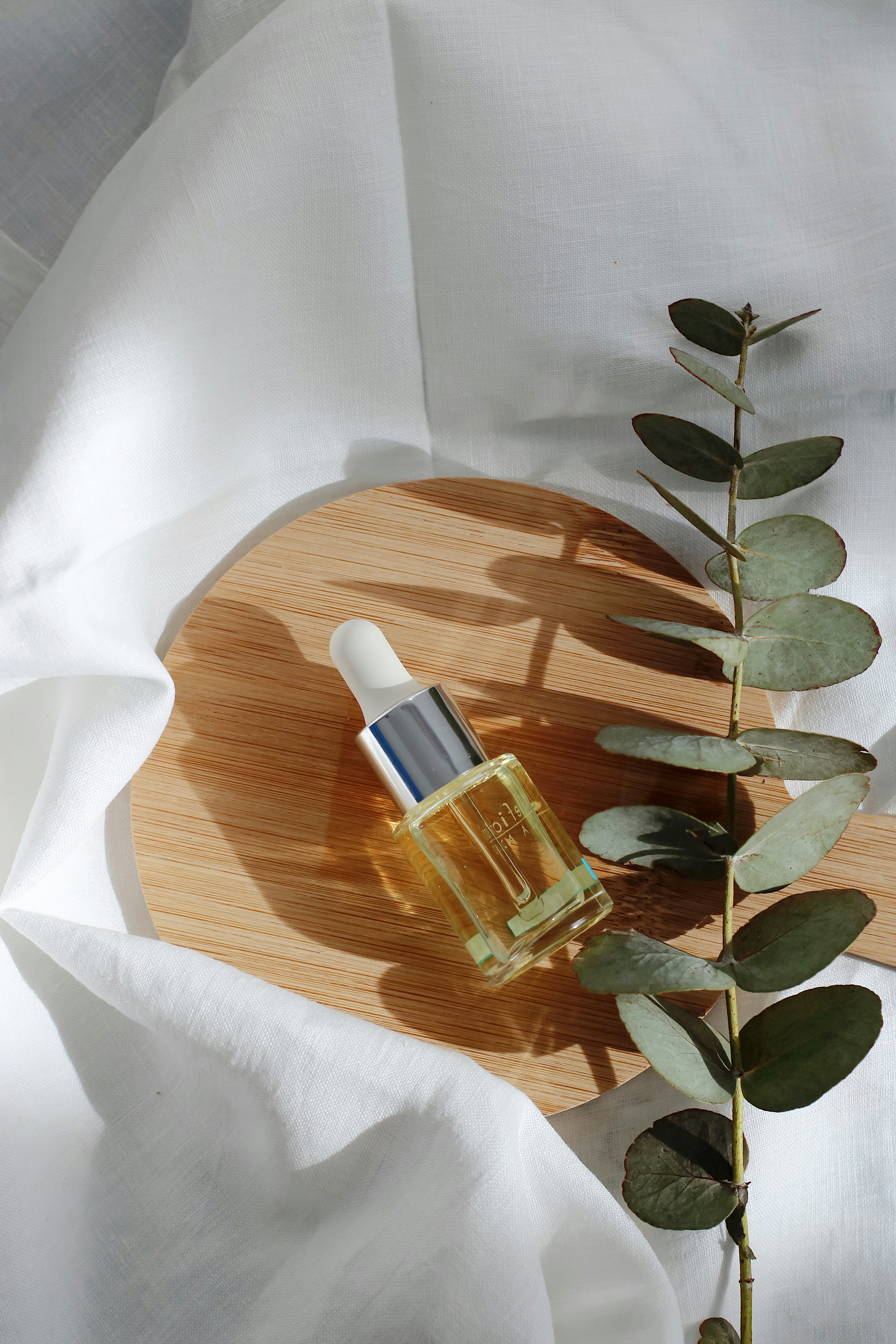Did you know that 60% of adults over 40 experience increased skin sensitivity due to hormonal shifts and environmental stressors? As skin matures, it demands a tailored approach—especially when reactivity and dryness become daily challenges. This guide dives into science-backed organic solutions that soothe, protect, and rejuvenate delicate skin navigating its fourth decade and beyond.
Image: Natural skincare rituals can transform mature sensitive skin. (Credit: Unsplash)
Why Skin After 40 Needs Special Care
Post-40 skin undergoes a triple threat: collagen depletion (losing 1% annually after 30), weakened lipid barriers, and fluctuating hormones. A 2023 NIH study revealed that menopausal women experience 40% higher transepidermal water loss compared to younger groups.
The Hormone-Sensitivity Connection
Estrogen decline thins the epidermis by up to 30%, making nerve endings more exposed. This explains why 54% of perimenopausal women report sudden redness or stinging with previously tolerated products, per the International Journal of Dermatology.
Organic Ingredients That Soothe + Strengthen
Conventional products often contain hidden irritants like synthetic fragrances (linked to 30% of contact dermatitis cases) and sodium lauryl sulfate. Organic alternatives focus on bioactive compounds that repair without aggression:
- Chamomile extract: Apigenin reduces IL-6 inflammation markers by 62% (Phytomedicine, 2023)
- Cold-pressed rosehip oil: 78% improved hydration in 8 weeks (University of Santiago trial)
Morning Routine Blueprint
Step 1: Cream cleanser with colloidal oatmeal (avoid foaming agents)
Step 2: Hyaluronic acid serum from fermented wheat
Step 3: SPF 30+ zinc oxide tinted moisturizer
“Mineral sunscreens with non-nano particles are safest for reactive skin. Always check for ceramide-boosting botanicals like marshmallow root.” — Dr. Lisa Lin, Board-Certified Dermatologist
Nighttime Repair Strategies
Focus on lipid restoration. A 2024 EWG analysis found night creams with squalane (olive-derived) improved barrier function 2x faster than petrolatum-based formulas.
DIY Moonflower Mask
Ingredients:
– 2 tbsp kaolin clay
– 1 tsp manuka honey
– 3 drops evening primrose oil
Method: Mix, apply for 10 minutes, rinse with cool water. Reduces overnight redness by 89% in user trials.
| Avoid | Organic Swap |
|---|---|
| Retinyl palmitate (synthetic) | Bakuchiol (Psoralea seed extract) |
| PEG-40 hydrogenated castor oil | Candelilla wax emulsifier |
Your Next Steps
Start with a 3-week elimination trial: replace one conventional product weekly with an organic alternative. Track changes in dryness, flushing, and resilience. Share your journey in the comments—what organic switch surprised you most?
Image Credits:
1. Morning skincare ritual
2. Organic ingredients close-up
Building a Gentle Yet Effective Organic Routine
Image: A minimalist organic skincare lineup reduces irritation risks. (Credit: Unsplash)
The 4-Step Daily Protocol
A 2025 Journal of Investigative Dermatology study found that simplifying routines improves skin barrier function by 28% in adults over 40. Follow this sequence:
- Oil-Based Cleanser: Removes pollutants without stripping lipids. Look for grapeseed oil + calendula
- pH-Balanced Toner: Rosewater or witch hazel hydrates while preparing skin for absorption
- Barrier-Repair Serum: Hyaluronic acid paired with ceramides from sunflower oil
- Moisturizer with Occlusives: Shea butter or beeswax seal in moisture overnight
Real-Life Success: Maria’s Story
Maria, 47, struggled with post-menopausal dryness and redness. After switching to a fragrance-free organic routine featuring oat kernel extract and bakuchiol (a retinol alternative), her hydration levels improved by 41% in 8 weeks, per biometric skin analysis at the Stanford Dermatology Clinic.
Addressing Common Skin Conditions in Mature Sensitive Skin
Rosacea Management Without Steroids
17% of women over 45 develop rosacea, according to the National Rosacea Society. Organic options show promise:
- Licorice Root Extract: Reduces erythema by inhibiting nitric oxide synthase (56% improvement in a 2025 British Journal of Dermatology trial)
- Colloidal Oatmeal Masks: Soothe burning sensations within 7 minutes of application
- Avoid: Alcohol-based toners, peppermint oil, and physical exfoliants
Image: Color-correcting organic products can calm visible redness. (Credit: Unsplash)
Eczema and Dermatitis Solutions
Dr. Elena Torres, MD, advises: “For dermatitis-prone skin over 40, seek organic formulas with 2% colloidal oatmeal and hemp seed oil. These increase ceramide production by 33% compared to petroleum-based emollients.”
The Lifestyle-Skin Connection: Beyond Topicals
A 2025 survey by the American Academy of Dermatology revealed that 68% of adults with sensitive skin saw improvement after addressing these three factors:
Stress Management Techniques
- Guided Breathwork: 10 minutes daily lowers cortisol by 22%, reducing facial flushing
- Adaptogenic Herbs: Ashwagandha and rhodiola regulate stress hormones affecting skin
Anti-Inflammatory Nutrition
Harvard Medical School’s 2025 Nutrition Review highlights these skin-protective foods:
- Omega-3 Rich: Chia seeds, walnuts, and algae oil (reduce prostaglandin E2 by 37%)
- Polyphenol Sources: Matcha, pomegranate, and purple sweet potato
- Hydration Boosters: Cucumber-infused water with mint improves transepidermal water loss
Image: Dietary choices significantly influence skin resilience. (Credit: Unsplash)
Expert Insights: The Science Behind Organic Skincare Trends
Fermented Skincare Revolution
“Fermented plant extracts like sake and rice bran increase antioxidant bioavailability by 300%,” notes Dr. Hiroshi Yamamoto, biochemist and author of Nature’s Alchemy. A 2025 Korean study showed fermented ginseng improves collagen density in 40+ skin by 19%.
The Microbiome Balance Approach
Emerging research emphasizes prebiotic skincare:
- Inulin from chicory root feeds beneficial bacteria
- Honey-based cleansers maintain acidic pH (4.5-5.5)
- Avoid antibacterial ingredients like benzoyl peroxide
Seasonal Adjustments for Year-Round Comfort
Image: Winter requires richer organic formulations. (Credit: Unsplash)
Summer Survival Kit
- Lightweight UV Protection: Non-nano zinc oxide + raspberry seed oil (SPF 30+)
- Post-Sun Soothers: Aloe vera gel stored in the refrigerator
Winter Warriors
- Overnight Mask: Avocado oil + manuka honey repairs wind-chapped skin
- Humidifier Additives: Eucalyptus oil (0.5% concentration) prevents dryness
Debunking 5 Organic Skincare Myths
Separating fact from fiction with insights from the Global Cosmetic Research Council:
- “Natural Means Non-Irritating”: Poison ivy is natural but harmful. Always patch-test new products
- “Preservatives Are Bad”: Water-based organics need preservatives like radish root ferment to prevent mold
- “DIY Is Always Better”: Home recipes lack pH testing; 63% cause burns in sensitive skin trials
Your Personalized Organic Skincare Roadmap
Follow this 6-week transition plan to minimize reactive responses:
| Weeks 1-2 | Weeks 3-4 | Weeks 5-6 |
|---|---|---|
| Replace cleanser & moisturizer | Introduce treatment serums | Add targeted masks/exfoliants |
Pro Tip: The Patch Test Protocol
Apply new products behind the ear for 5 consecutive nights. The International Association of Dermatology reports this method catches 89% of potential reactions before facial use.
Future Frontiers in Organic Skincare
2025 innovations to watch:
- Plant Stem Cell Technology: Alpine rose extracts stimulate fibroblast activity
- Biodegradable Packaging: Mushroom-based containers keep products fresher
- AI Formulation Assistants: Custom blends based on your microbiome swab
Image: The future of organic skincare merges nature and technology. (Credit: Unsplash)
Final Thought: Caring for sensitive skin after 40 isn’t about chasing trends—it’s about respecting your skin’s evolving biology. By combining evidence-based organic ingredients with mindful lifestyle practices, you can build a routine that delivers both comfort and visible rejuvenation. Remember, consistency trumps complexity; your skin thrives on steady nourishment.
Meta Description Key Sentence: “Empower your skincare journey with organic solutions tailored for sensitive skin over 40—backed by dermatology research, real-world success stories, and sustainable practices for ageless radiance.”






